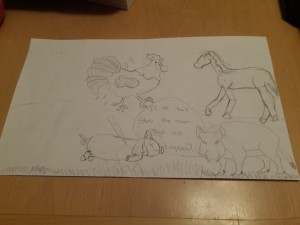https://drive.google.com/file/d/0B3f7p7XNEmQ6amJIRWJpcTFnVjA2RjF0T1FmUkEta0VMY25z/view?usp=docslist_api
Created by Julian Parr-forest, Avery Swedberg, and Dasha, This stop motion movie was based on Shakespeare’s play, “The Taming of the Shrew”. The movie only featured the induction, not the inset. Meaning it showed the parts leading up to the play. The stop motion format was much simpler than organizing actors, picking parts and practicing, making costumes, writing a script, and building a stage. We only needed Lego pieces, a camera, and a narrator script.
Many problems occurred, especially during the making of the stop motion movie. During the making, the stage would brake, move, and ruin the shot. The characters weren’t any easier to use. They would consistently fall down,and loose parts. Moving them was even worse, the limbs were hard to set, and would misplace the stage. The stop motion application was the worst, the app wouldn’t let us continue with a scene after it’s been edited. At the end of every scene, the app would place an advertisement for itself, making us have to edit the scenes. All of this combined made it a frustrating project, and I don’t remember teachers using this idea in less they have the right technology.
The main lesson we learned was to not discourage ourselves when a problem occurred, and to make sure that we’re focused.


 Exposition
Exposition